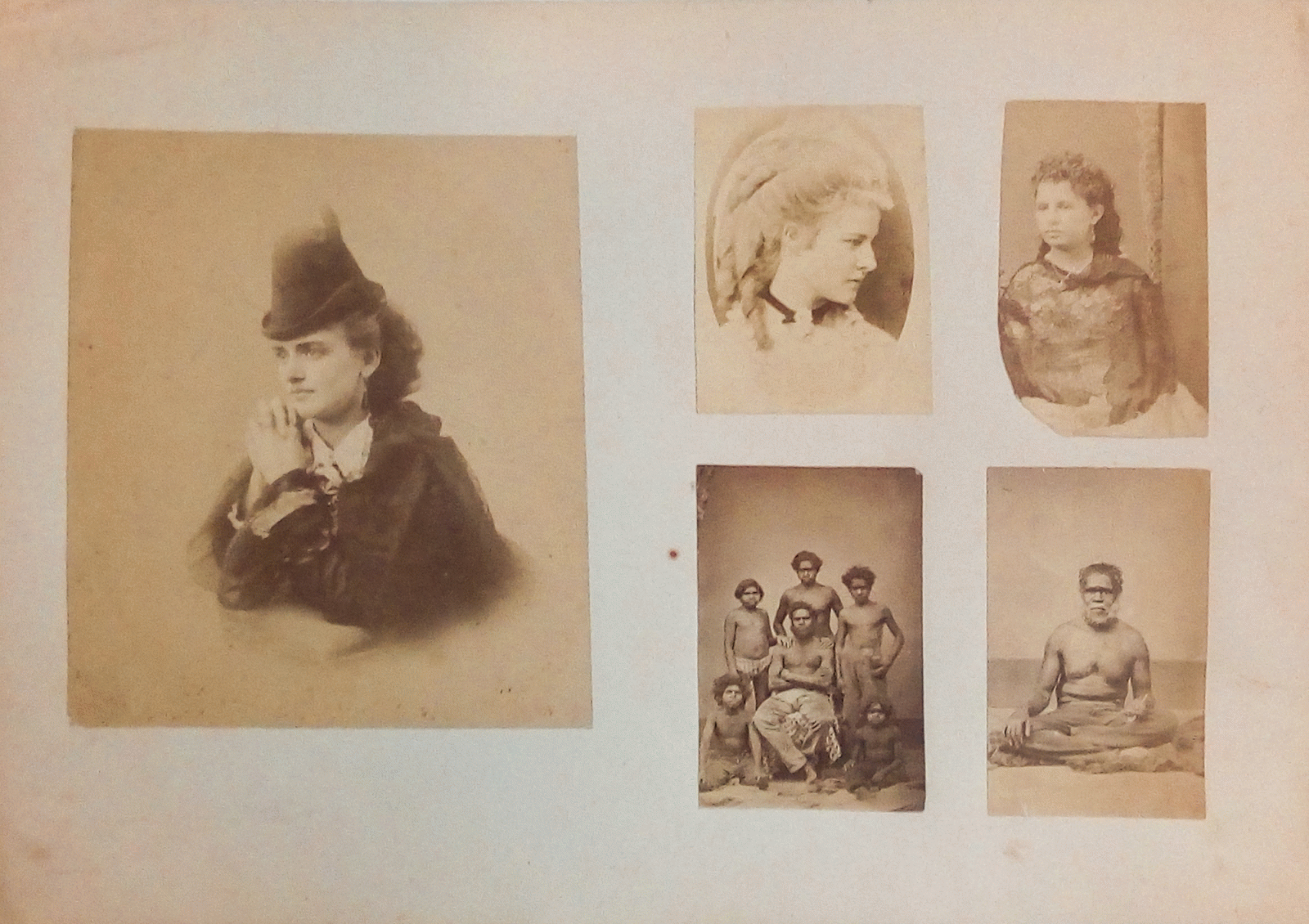Matinée
Agnese Ghezzi: Shaping the Anthropological Objective: Colonial Alterities and National Identities in Italy (1861-1911)

Albumen prints pasted on cardboard, F10, Luigi Maria D’Albertis Collection, Enrico Alberto D’Albertis Archive, Courtesy of Castello D'Albertis Museum of World Cultures (Genova, Italy)
The seminar will analyse the development of anthropological photography in Italy between 1861 and 1911. Looking at the first fifty years of Italian Unification means to consider the establishment of anthropology and the uses of photography within both the framework of national construction and the development of the colonial project. If anthropology at first focused on the typological classification of non-Western and colonial subjects, using photography to build visually comparative series, it soon turned the lenses toward the Italian peninsula. Anthropometric intents merged with studies on popular customs and tradition, moving the attention from bodily features to material cultures. In the movement from colonial to domestic, from far to close territories, the exotifying gaze was still present, adapted to the analysis of southern regions and rural communities considered as primitive civilisation. Visual documentation was used to build theories of affinity or diversity, establishing centres and peripheries, and creating a new geographical and social hierarchy that moved on the divide between north and south. At the same time, anthropological attempts to register regional varieties went hand in hand with educational and identitarian purpose, helping to build a narrative of Italy as a nation composed of many different homelands anchored to local traditions. Such rhetoric became evident in significant collecting and celebratory projects such as ethnographic exhibitions, where pictures partook together with objects in creating shared national imagery. By using primary sources coming from Italian anthropological archives, the seminar will investigate the visual tropes adopted in pictures, the connection between administrative needs and scientific research, the performance and interpretation of the documentary value attributed to photography.
Agnese Ghezzi is a Doctoral Fellow at the Kunsthistorisches Institut in Florenz, under the department of Prof. Dr. Gerhard Wolf and a PhD Candidate at IMT School for Advanced Studies Lucca, in the Curriculum Analysis and Management of Cultural Heritage. In 2018, she was Visiting Researcher at the Photographic History Research Centre, De Montfort University, Leicester (UK). Her research project analyses the connection between photography and anthropology in Italy between the 19th and 20th century (advisor: Linda Bertelli, co-advisor: Kelley Wilder). Since 2015, she has been collaborating with Castello D'Albertis Museum of World Cultures in Genoa for the valorisation of its photographic collection. She studied Modern and Contemporary History at the University of Florence, the Katholieke Universiteit Leuven, and the University of Bologna. Her research interest includes the history of photography and visual studies, cultural history, history of science, museology and history of collecting, colonial history, archives and cultural heritage.
04 February 2020, 11:00am
Kunsthistorisches Institut in Florenz
Max-Planck-Institut
Palazzo Grifoni Budini Gattai
Via dei Servi 51
50122 Firenze
Notice
This event will be documented photographically and/or recorded on video. Please let us know if you do not agree with the Kunsthistorisches Institut in Florenz using images in which you might be recognizable for event documentation and public relation purposes (e.g. social media).


